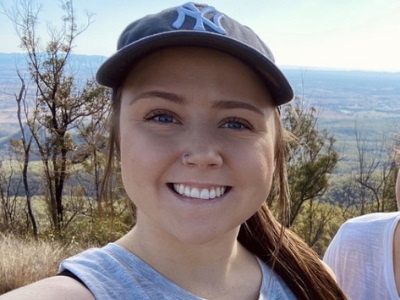
UQ student intern Taylor McGregor.
Since 2014, Wildlife Queensland has hosted university students from a range of educational institutions seeking placement opportunities in the environmental conservation industry. Students placed with Wildlife Queensland undertake projects in policy development, wildlife monitoring, and community engagement, and support Head Office staff in the day-to-day running of the Society.
The Society’s Student Placement Program is designed to offer students the opportunity to develop both discipline-specific and transferable skills, as well as an understanding of the contributions and obligations expected of a professional graduate in the environmental field.
Wildlife Queensland Student Placement Program 2020
University of Queensland (UQ) student Taylor McGregor completed a three-month placement with Wildlife Queensland in 2020. During that time, Taylor worked on updating the Society’s ‘Conservation of Biodiversity in Queensland Policy’.
Read about Taylor and her experience at Wildlife Queensland below.
Q. What degree are you studying at UQ and what year have you just completed?
Taylor: I am studying a Bachelor of Environmental Management (with Honours) majoring in Natural Systems and Wildlife at UQ. I have just completed my third year of study and am getting ready to tackle honours next year in 2021.
Q. Tell me about the project you worked on whilst at Wildlife Queensland
Taylor: During my time at Wildlife Queensland, I was tasked with the updating and rewriting of Wildlife Queensland’s Policy, ‘The Conservation of Biodiversity in Queensland’. This was in order to reflect the change that has occurred in Commonwealth and State legislation, international standards and conservation thinking. A major focus of this project, and the subsequent policy statement, surrounded Queensland’s Protected Area Estate, associated state marine parks, and inefficiencies of current legislation. This was all undertaken with the aim to arrest biodiversity decline in Queensland and to reverse the prevailing trend.
The project was achieved through an amalgamation of research, both academic and other legislative resources via a literature review, which was subsequently combined with surveyed opinions from conservation practitioners (Wildlife Queensland Councillors, WWF). Underneath the five main policy goals that were identified, actions Wildlife Queensland can take given resources and skillsets available were provided. These were also the overall recommendations that Wildlife Queensland believed would aid the biodiversity crisis in Queensland.
Q. What skills and learnings will you take away from your time with Wildlife Queensland?
Taylor: Throughout my time with Wildlife Queensland, I learnt so much. I learnt how to create a professional conservation policy, how to communicate – in person and via email – with professionals in the field, and how to be a part of a team in an office environment. I also learnt the intricate details that go into biodiversity conservation with regards to actions and inefficiencies under the legislation, and the intricate details of protected area management (both terrestrial and marine).
Two main skills I gained from this experience were:
- how to work predominantly independently on a project to achieve a specified goal
- how to receive feedback/criticism and redirect my work to accommodate (often vastly improving the outcome of my work).
Both are indispensable skills for a future environmental management graduate.
Q. What has been the most enjoyable aspect of working with Wildlife Queensland?
Taylor: The most enjoyable aspect of working with Wildlife Queensland was coming into the office three days a week and being part of a welcoming and kind group of people. Des, Janelle, Matt and Amanda, in particular, were inclusive and helpful towards my studies and were always happy to help with any questions or queries I had, or just have a chat. I also really enjoyed being in a workplace that was constantly discussing wildlife and the details of their projects/tasks they were working on, to better the well-being of Queensland’s flora and fauna. It was really motivating.
Editor’s note: Wildlife Queensland sincerely thanks Taylor for her exemplary work and contribution to wildlife conservation, her valuable input and discussions, and for being such a warm, generous, kind-hearted member of the Wildlife Queensland team.
